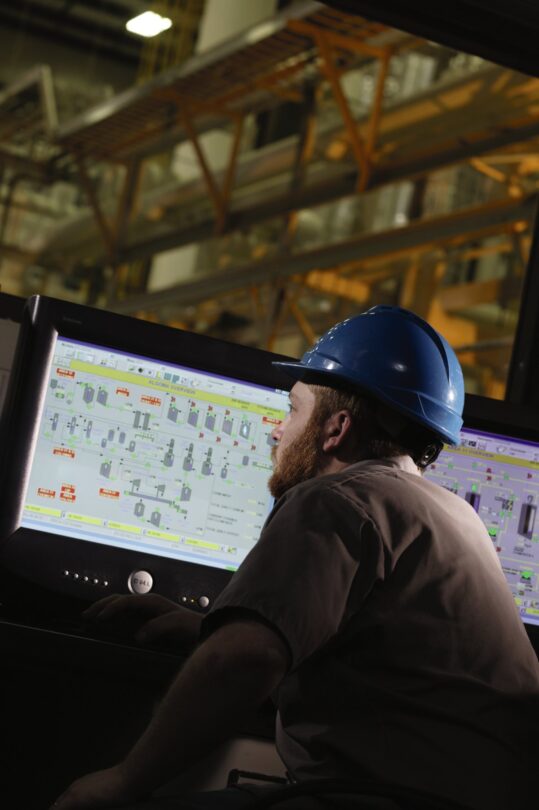 It’s not often that we get a new take on the distributed control system (DCS). After all, the DCS has been a process manufacturing staple for decades, bringing together independent applications and processes for increased stability, and, in the case of the DeltaV™ DCS, powerful data contextualization. Not only has the DCS been around for decades, but many plants have had their specific DCS in place for decades as well.
It’s not often that we get a new take on the distributed control system (DCS). After all, the DCS has been a process manufacturing staple for decades, bringing together independent applications and processes for increased stability, and, in the case of the DeltaV™ DCS, powerful data contextualization. Not only has the DCS been around for decades, but many plants have had their specific DCS in place for decades as well.
However, in recent years, the role of the DCS has begun to evolve. Plants and enterprises have become far more data-centric and data driven. Sensors deliver countless data points necessary for monitoring and optimization, and the resulting performance enhancement is essential to successfully competing in an increasingly global marketplace. But that data is dependent on the DCS to be useful. Emerson’s Claudio Fayad explains this challenge in his recent article in Control Engineering magazine,
“Leaving out the DCS and its ability to contextualize data results in decreased ability to effectively use the collected data. This in turn forces teams to find new ways to integrate systems and gather context, which increases complexity, making it extremely difficult to maintain the resulting systems of systems, while reducing flexibility to drive future business.”
Rethinking the DCS strategy
So, what are forward-thinking teams to do? If their decades old DCS technology contains critical data and context that they need to drive business systems, but that data is trapped in silos, and it isn’t cost effective to move it all through controllers, how can they continue their digital transformation initiatives? The answer is modernization—but not just any modernization. Today’s most effective teams are updating to modern control systems designed as part of a cohesive enterprise operations platform, built on a boundless automation vision of seamless, secure connectivity from the intelligent field, through the edge, and into the cloud.
As technologies like Ethernet-APL unlock increasing layers of data and connectivity, teams cannot afford to commit to solutions that require complex engineering to unlock data mobility. Instead, they need platforms like the DeltaV DCS that are designed from the ground up to seamlessly connect all aspects of their operations, continually evolving as a seamless platform. Claudio shares,
“Modernizing to a new DCS designed to operate at the heart of a comprehensive automation platform is the solution. Automation suppliers are already piloting new technologies, such as enhancing DCS flexibility with software-defined controllers. This decouples the controller software from its hardware, while creating new data pathways to move data through the DCS more efficiently and effectively. These solutions will make it easier to apply context, without adding complexity or reducing flexibility.
Moreover, innovators are designing new data fabrics, leveraging open protocols like OPC UA and MQTT, to move the control system from its primary focus on PIDs and interlocks. This evolution will create a platform for data-centric, secure, and efficient movement of data—while still providing real-time control. This new platform will allow a wide variety of applications to be fully integrated, benefiting from the contextualized data from intelligent field devices, without relying on controllers as the single data pathway for field data.”
Democratizing data
This initiative only works when the DCS can still perform its mission critical tasks while easily interacting with other systems. Some organizations are solving for this problem by isolating the DCS—effectively designing an end-run around the controllers. However, when they do so, most operations teams find they spend a lot more time re-contextualizing the data, trying to transform data swamps back into data lakes.
Emerson takes a different approach. As it designs the evolving enterprise operations platform, Emerson is putting the DCS at the center of the modern automation platform, creating a flexible, scalable, and, most importantly, integrated solution to enable teams to leverage the full value of the DCS while also driving the most possible performance improvement from their data.

